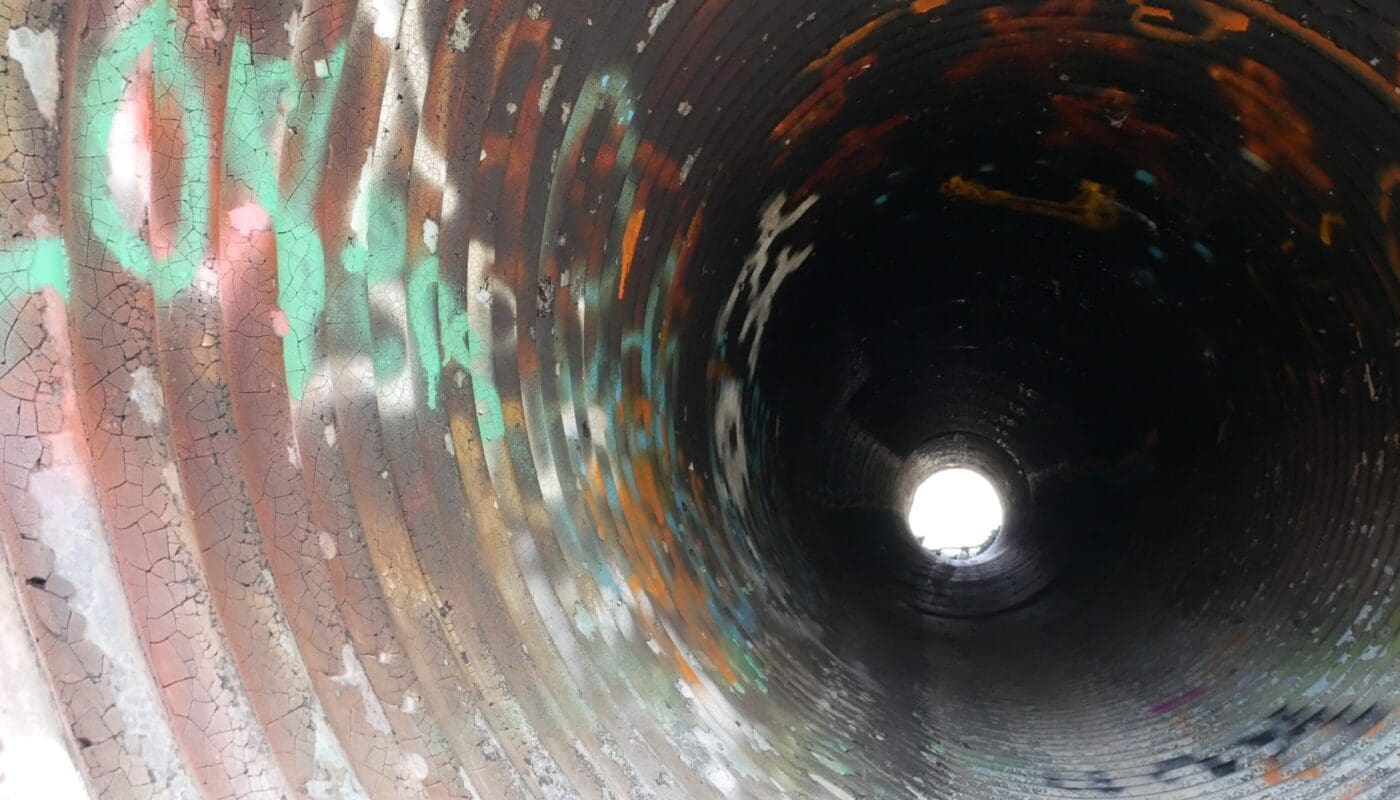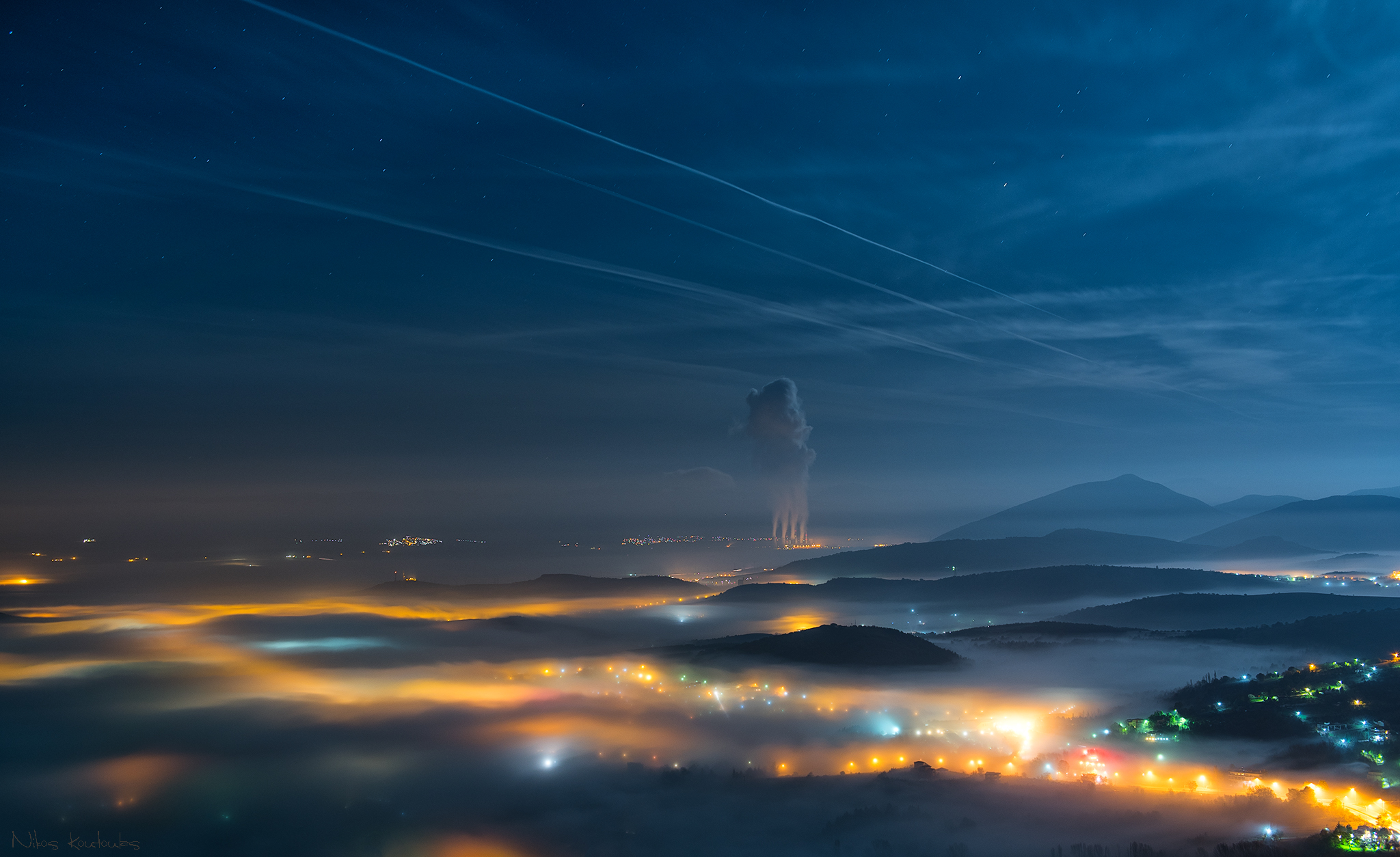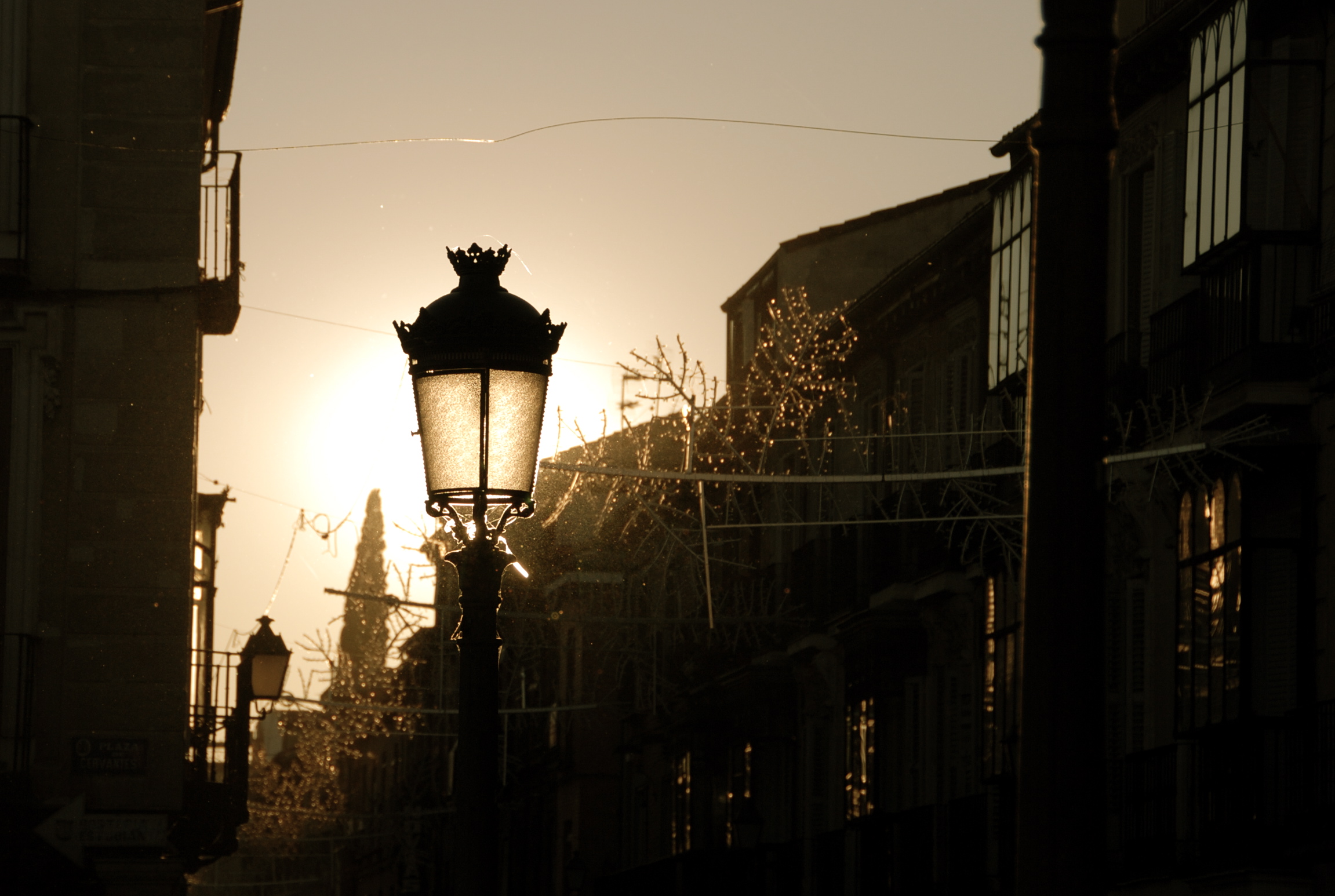I stood on the hill gazing down at Pinkerton Park in Franklin, Tennessee, my camera aiming at each piece of the park below: the wooden castles of “Tinkerbell Playground,” the swing sets, the gravel loops, the little bridge hanging over the creek. I photographed the skyline of the old park, but as I turned away from the familiar to the trees around me, the world was new.
I studied the tree trunks, how they curved, bent sideways, then shot high into the sky. I’d gone to Pinkerton since I was born, but I never noticed the trees until that spring day, when my mind finally cleared of distractions to notice nature’s beauty. I shot photos from every angle, encapsulating the wild trees in my camera.
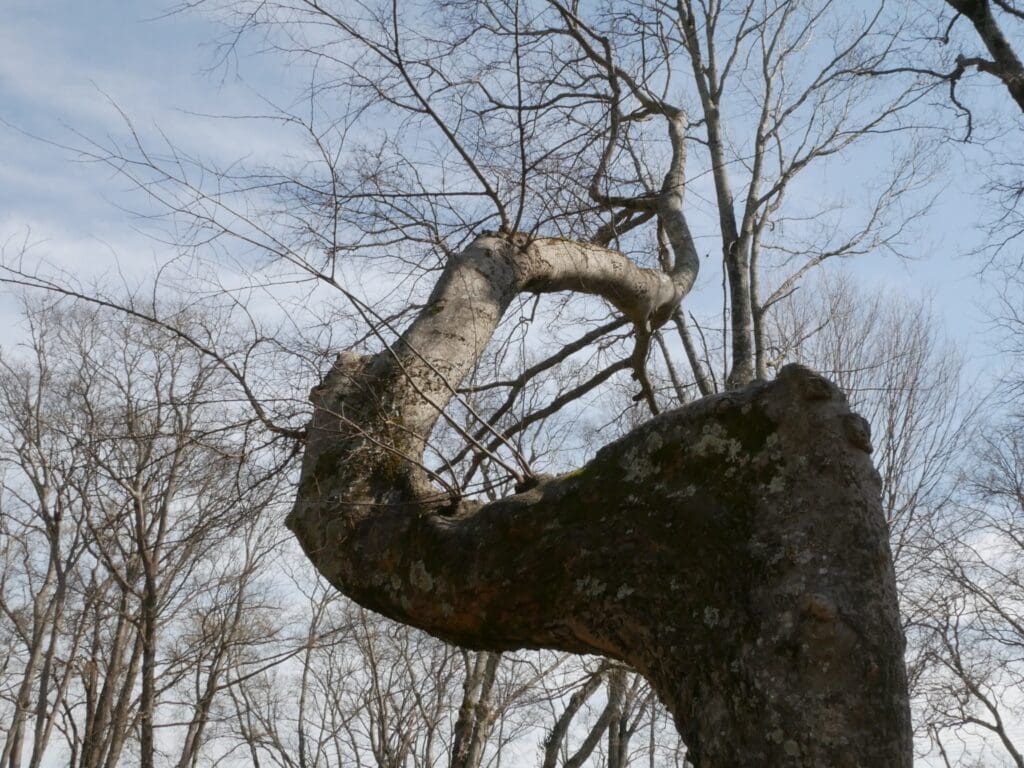
Soon the trees became another familiar part of Pinkerton, and nothing else on the hill interested me. All that remained was the path back down the hill or the hiking trail. I studied both paths on opposite ends of the hill, but turning my head back and forth, my eye caught a thin dirt trail, covered by thick shrubs and branches, tucked away at the hill’s edge.
I inched closer. The secret path snaked around the foliage, leading into the heart of the woods. Like the trees on the hill, I’d never noticed the trail before. I wondered if it was a mirage, a creation of my mind to keep me from leaving the park. I looked around, wondering if anyone else saw the newly formed path ahead, but I was alone on the hill.
* * *
I spent my freshman year at the University of Memphis lonely, bored, locked in my dorm, and stuck on my phone. I spent whole weekends in bed, staring at my phone for hours at a time, but not even all the world’s entertainment at the tap of my thumbs sustained me. I’d grow bored and stare off at the ceiling, and in those quiet times, my mind gnawed at me.
Of course this is how you spend your time in college. Why would I expect anything else?
I was too shy, too introverted to talk to strangers, and everyone on campus was a stranger. So, I stayed inside. I’d turn back to my screen and scroll through Instagram, seeing snapshots of my high school friends “living life” in Knoxville, while I was in Memphis, wishing I was with them, wishing I was doing anything other than staying inside.
* * *
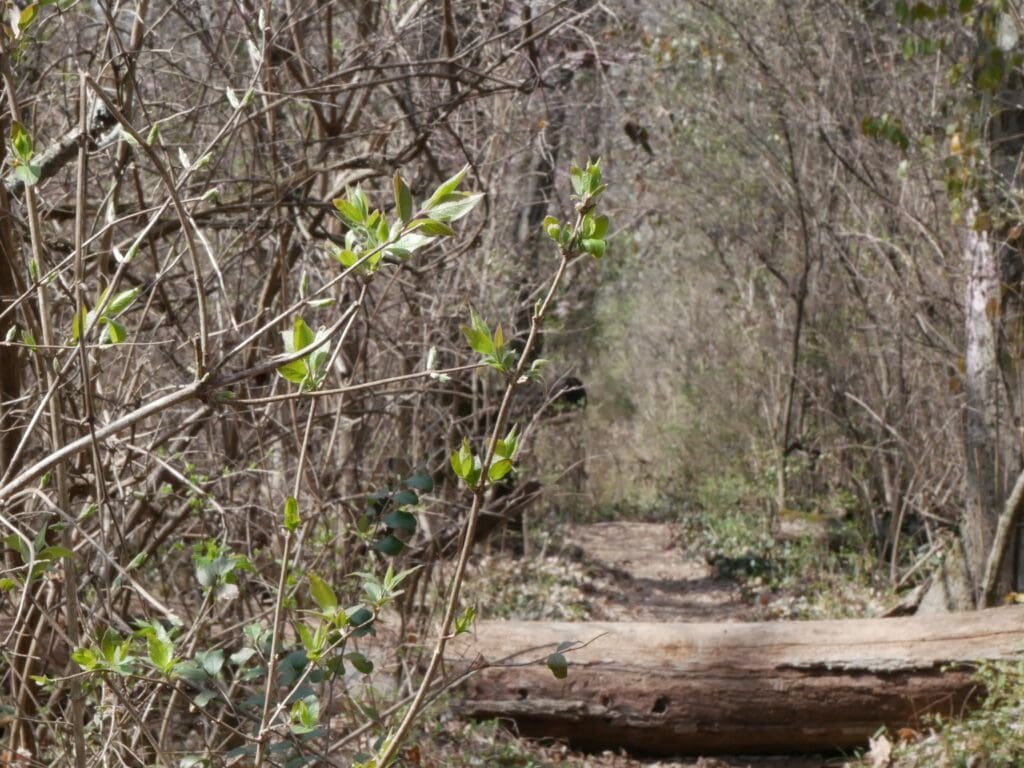
I peeked through the shrubs at the trail’s edge, my eyes following the lines to where they disappeared deep into the woods. I felt the trail call to me, beckoning me to take my first step.
So, not knowing if I’d disappear forever into a new world or find nothing at all, I slung my camera over my shoulder, pushed the shrubs back, and stepped onto the unknown path.
Branches snapped under my feet as I followed the dirt trail, seeing nothing but trees, weeds, and empty liquor bottles all around me. I walked deeper into the unknown, unsure of where I was heading.
But I was heading somewhere.
* * *
Another weekend went by in my second semester, still spending countless hours watching everyone I knew partying at college. Watching them have the time of their lives in every post, every photo I scrolled past, I believed what I saw was their permanent reality, and it plunged me deeper into the hatred I felt at myself for wasting my life in bed, doing nothing.
Everyone you know is having the time of their lives, while you’re here in bed, letting your own life pass by.
I shot up, tossed my phone off my bed, and stared out the window at the outside world. I needed to get out: out of my dorm, out of my head, and away from my phone.. The shy kid inside thought everyone would watch me as I walked around a public place alone, and it made him want to run back in. I needed something to distract me, something to give me a reason to go outside. Slowly, I looked underneath my bed.
On top of my dresser sat a Lumix camera, my birthday present to myself to make movies, YouTube videos, whatever I wanted to create. But every time I looked at my camera, I dreaded how long it would take to set up and film the perfect take. So, I watched movies and YouTube instead while it sat on my dresser, collecting dust. I spent so much money on my camera, and I’d barely touched it. I needed a reason to put it to use, and I finally had one. I grabbed my Lumix, put a lens on, and hopped in my car.
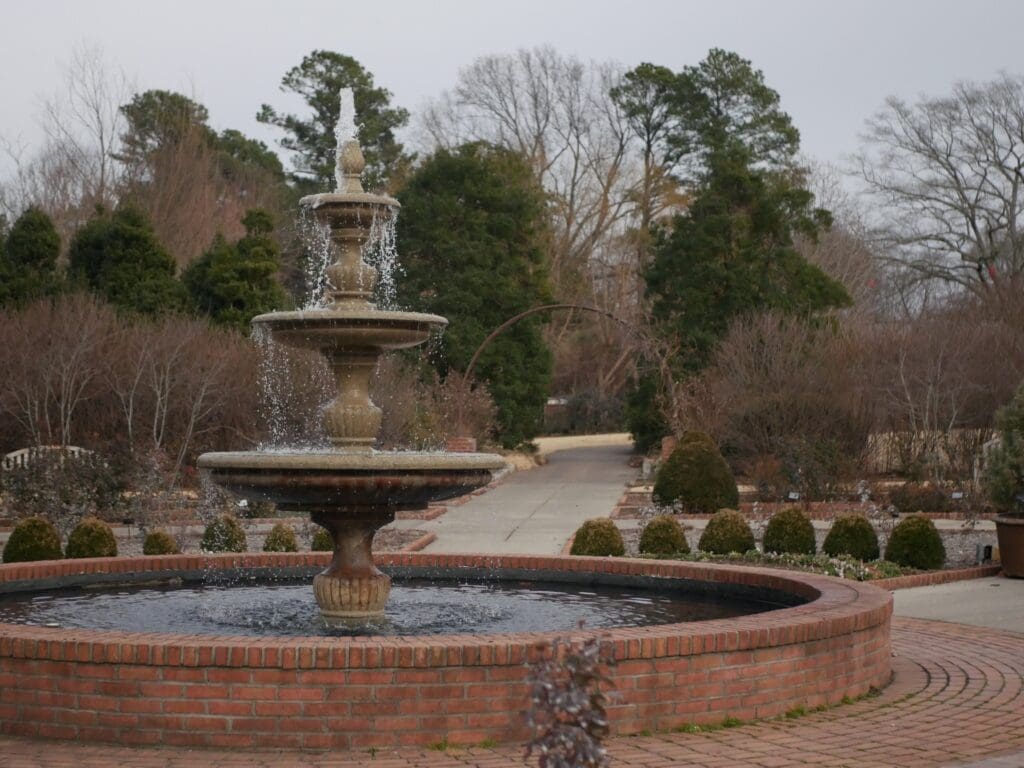
The only place I thought to go was the Botanical Gardens of Memphis. I walked the park with my parents during student orientation, and I remembered the painted bridges, colorful flowers, and statues I’d seen. My mind popped with each image, and I knew how I wanted to shoot each photo.
I parked outside the Botanical Gardens on a cloudy Sunday afternoon, and I started walking. The park was empty: only me, my camera, and dozens of subjects to photograph. I walked all around the park, shooting photos of the fountains spewing out water gazing upon each statue: two geese stood beside one another in the shade of the trees above, Poseidon held his trident against the fallen leaves and branches that covered his pond, and an angel held a bird in her hand as it began to fly away.
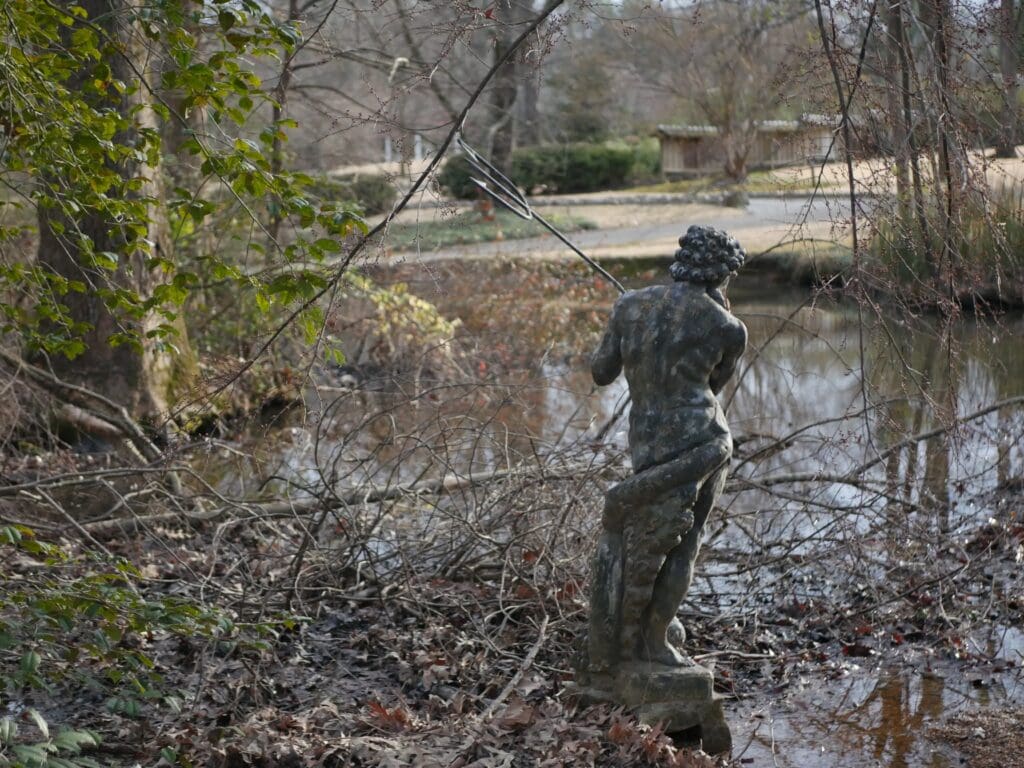
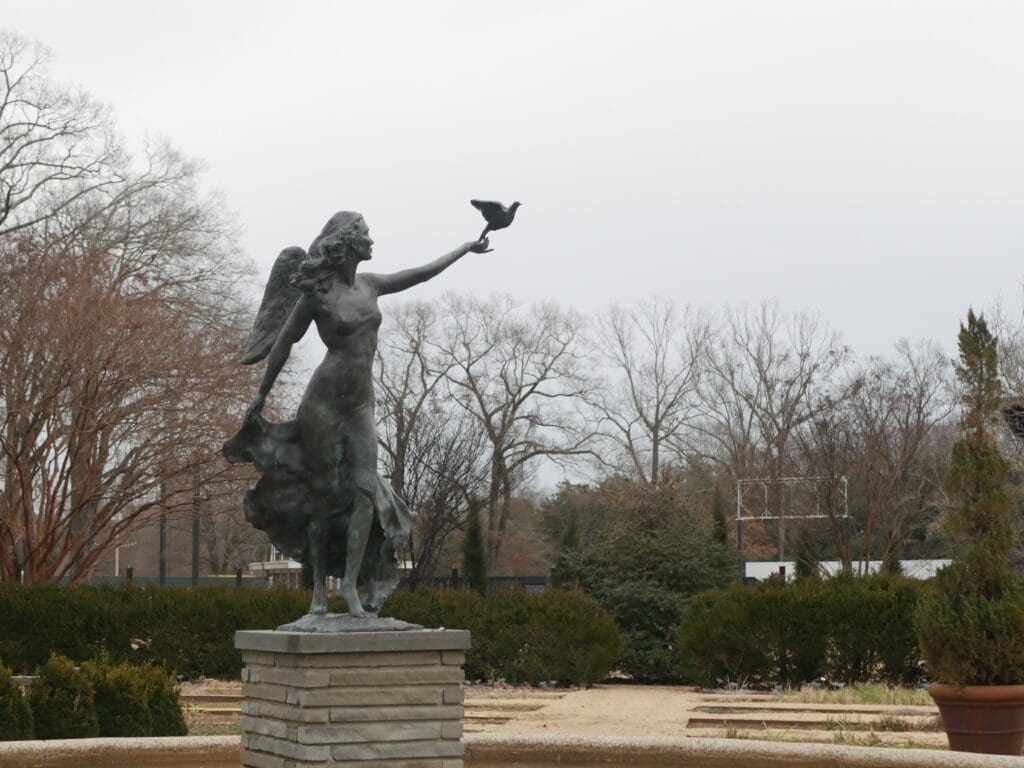
Getting outside, away from my phone for just a few hours, entertained me more than anything did in a long time. For years, I grabbed my phone the second I had nothing to do and shut my brain off, but walking the Botanical Gardens, I realized how long I’d been distracted from the real world by focusing on my phone, and I wondered how many other amazing things I’d missed. After taking the last photos, I walked back to my car feeling better: better about myself, how I spent my time in college, and being alone, experiencing somewhere new.
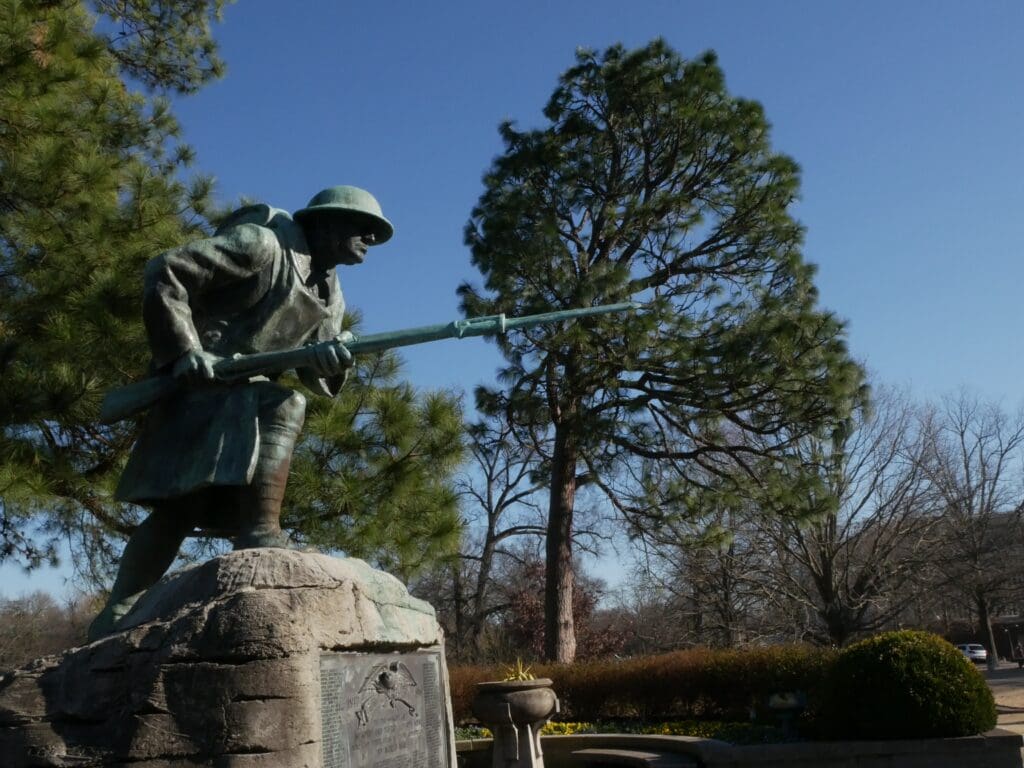
So, every Sunday after, I walked the parks of Memphis. From the giant ones like Shelby Park, with open fields, long trails, ponds, and waves of people, to the smaller parks like Veteran’s Plaza, honoring the veterans of Shelby County from World War I all the way to Desert Storm.
Seeing parts of the world, even as small as a government park, gave me a sense of discovery; finding a little speck on Earth I’d never seen and one many others would never see, their eyes too focused on bright screens, the artificial world, and what everyone else inside that world was doing. When I came home from school late that spring semester, that sense of discovery led me onto the unknown path of Pinkerton.
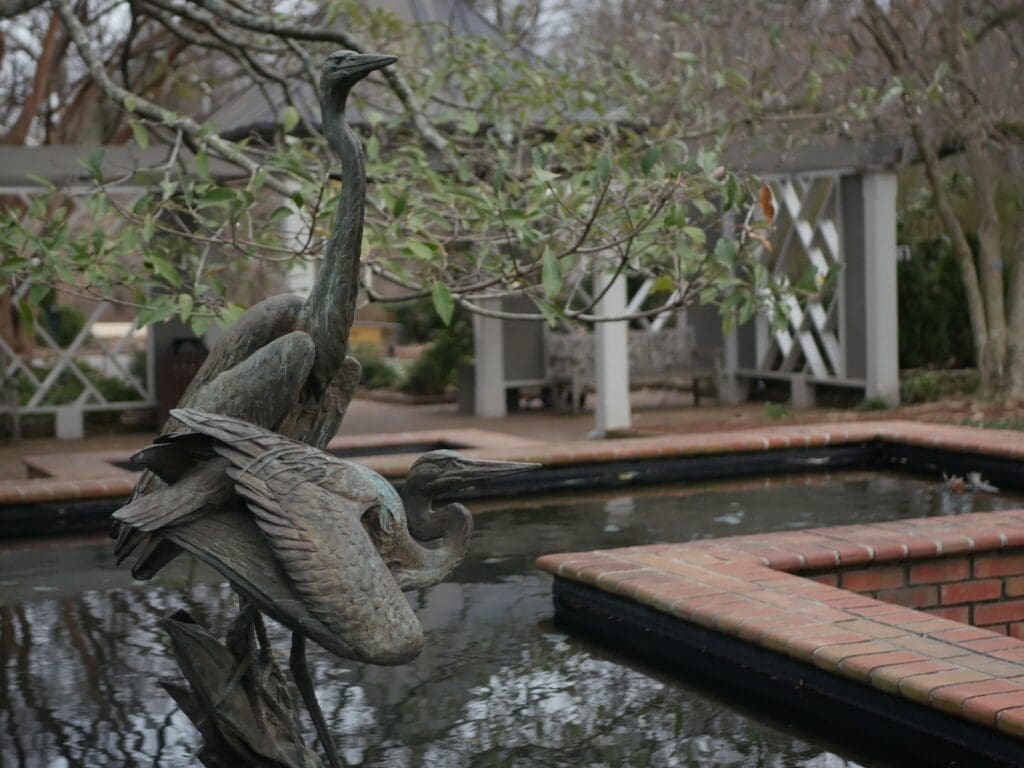
* * *
More and more weeds shot high out of the ground, blocking me from moving on down the path. I slapped branches out of my way and dodged all the tall weeds, my arms and legs growing sore. The path led me nowhere, an endless line through the woods with the same scenery I’d seen since I first stepped foot on it. I hoped for the opposite; I stepped onto the path to escape the routine scenery of everyday life, but the path disappointed me.
It’ll just be a shortcut back onto the trail. Go on home, lie down in bed. Get back on your phone.
I began to turn around, make the long trek back the way I came, but a sound stopped me. I listened closely; through the quiet of the woods, further down the path, I heard flowing water.
I marched down the path, elbowing the weeds and twigs out of my face, and slowly, the path cleared. The shrubs vanished. The dirt beneath me changed to rock, and I looked ahead, expecting an aquatic paradise, but discovering something else entirely.
In front of me stood a kaleidoscope of color, sprayed underneath the train tracks that ran through town. Graffiti of all sorts covered the pillars: Devils, monsters, hearts, lovers’ names, anything and everything sat below the tracks, and beyond was the flowing Harpeth River, glistening in the sun.
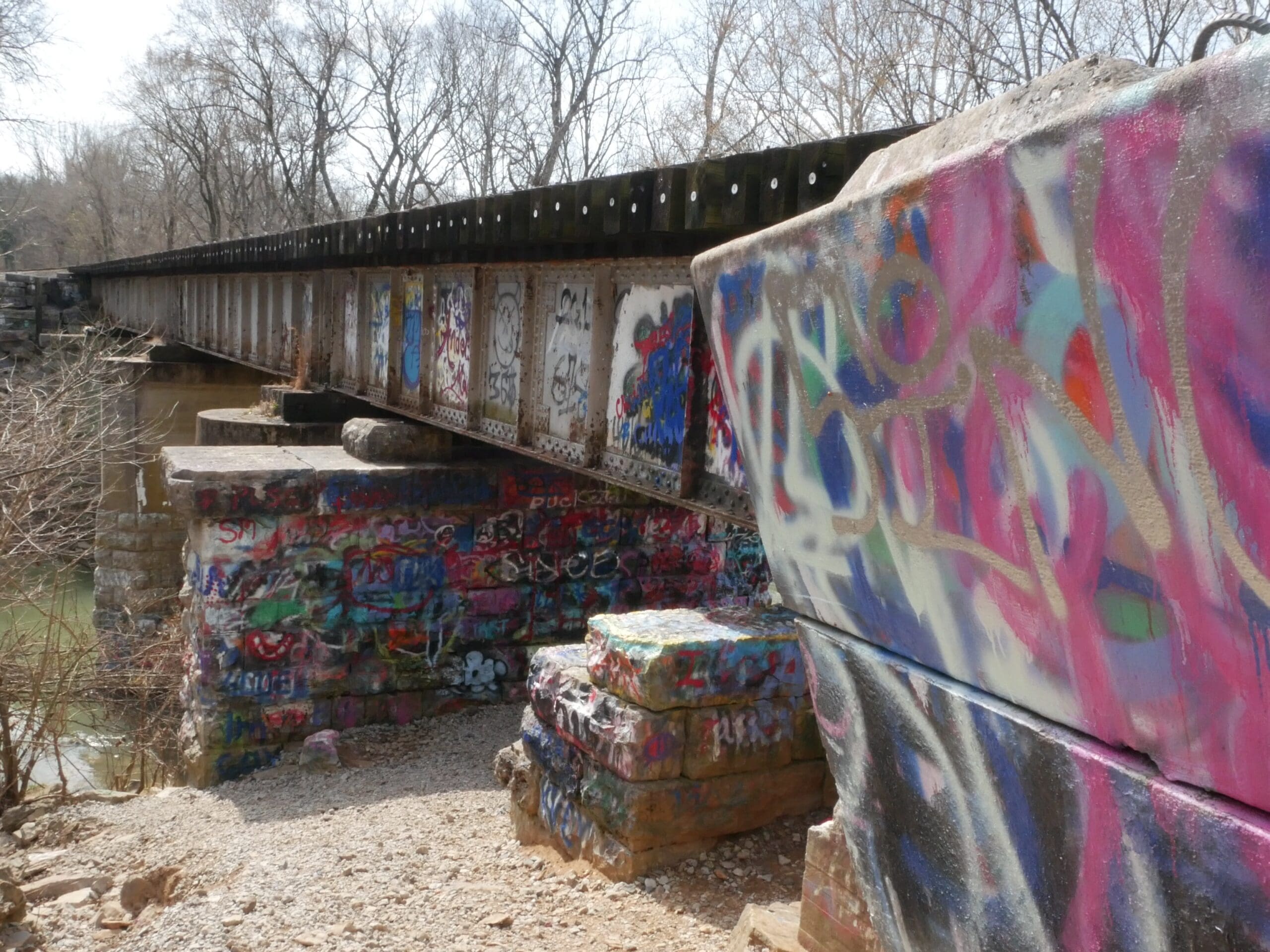
I stood in shock, my camera raising up in my grasp. I spent my whole life thinking I’d seen every inch of Pinkerton, but it held an artistic oasis I never knew. I photographed every piece of graffiti, studying each one before I went to the next. Drawings overlapped with one another from artists who sprayed their creations long before, and new artists making their own mark on the hidden gallery.
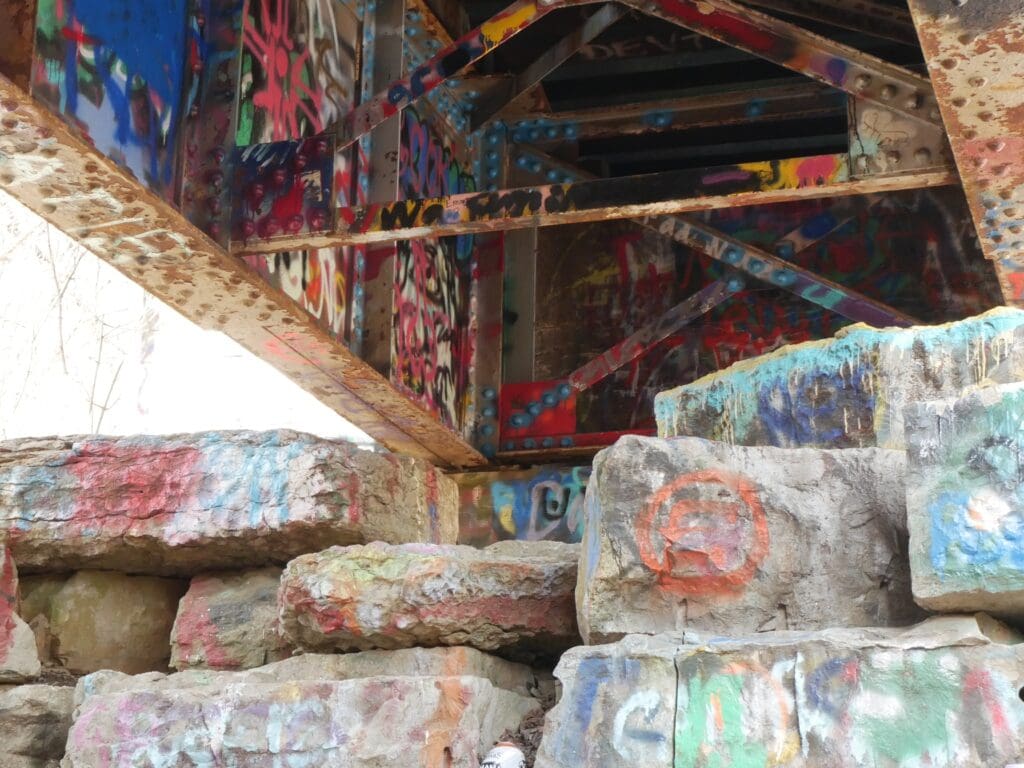
I climbed onto the train tracks and walked along the planks, watching the water flow beneath me. I never felt so alive. I’d discovered something new all on my own: the beauty of the world and what humans could create upon it without grabbing the little device in my pocket or worrying about what everyone else was doing.
I promised myself to find that feeling again: to get off my phone, get out in nature, and see what beautiful secrets lie at the end of the unknown path.
As I photographed the sunlight hitting the water, I sat up on a piece of concrete under the railroad tracks, where guys and girls signed their names on the metal girders and artists expressed themselves, all from aerosol cans.
I set my camera down and pushed it aside, my body free of all devices. I breathed in as I listened to the Harpeth flow, and I took in that beautiful moment I almost missed.

Seth Wright is a senior at Lipscomb University studying English. Focusing more on literary fiction and creative nonfiction, he writes “whatever pops into his head”.
All the images in this piece, including the cover image, are original photography by Seth Wright.

